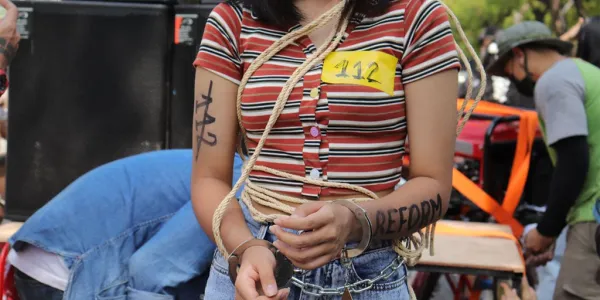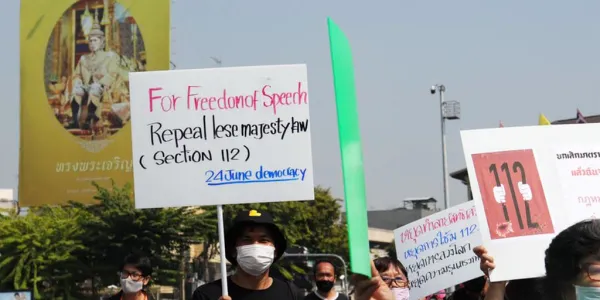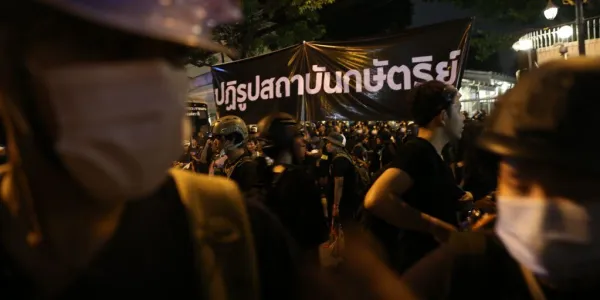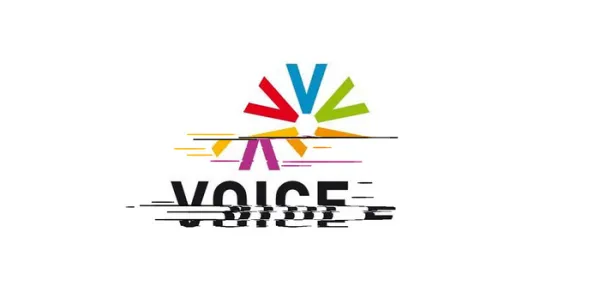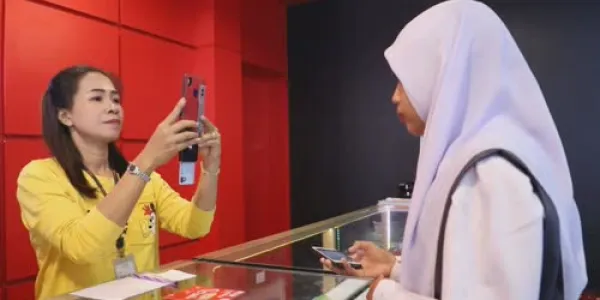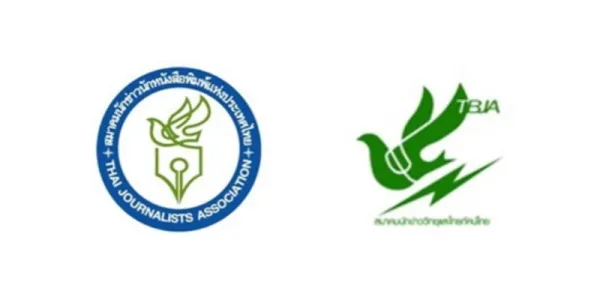By Prachatai |
<p>Academics, lawyers, a former Constitutional Court judge and a former television newsroom editor have discussed the Constitutional Court verdict outlawing the call for monarchy reform. Despite the different stances taken, the lèse majesté law and cultural values regarding the monarchy prove to have a serious effect on media freedom.</p>
By Prachatai |
<p>Amarat Chokepamitkul, an MP of the Move Forward Party (MFP) and member of the House Committee on Political Development, Mass Communications and Public Participation said the National Broadcasting and Telecommunications Commission (NBTC) would be summoned to explain their request to the mainstream media to avoid covering news about monarchy reform.</p>
By Prachatai |
<p>The National Broadcasting and Telecommunications Commission (NBTC) has warned the media against reporting on calls for monarchy reform after the Constitutional Court ruled that such messages are treasonous.</p>
By Prachatai |
<p>The National Broadcasting and Telecommunications Commission (NBTC) ordered the MVTV company to pay a fine of 50,000 baht for airing Voice TV’s “Voice Go” programme, claiming that the content of the programme affects national security.</p><p> </p>
By Prachatai |
<p>Mobile phone users in the Deep South must register facial identification for their SIM card by 31 October, says the Internal Security Operation Command (ISOC); critics are concerned about a violation of fundamental rights.</p>
<div>
<div>Two major journalist organisations have condemned the recent order to suspend for 30 days the broadcasting licence of a TV station run by red-shirt leaders.</div>
<div> </div>
<div>On 11 May 2018, the Thai Journalists Association and the Thai Broadcast Journalists Association released a joint statement denouncing the order by the National Broadcasting and Telecommunications Commission (NBTC) to suspend the broadcast licence of Peace TV for 30 days.</div>
<div> </div>
<div>Citing National Council for Peace and Order (NCPO) Orders 97/2014 and 103/2014, the NBTC imposed the month-
</div></div>
<div>The national broadcasting regulator on Wednesday suspended a popular news talk program on Voice TV for 15 days, saying it caused confusion and incited societal division.</div>
<div> </div>
<div>Voice TV – owned by Pathongthae Shinawatra, son of fugitive former premier Thaksin Shinawatra – will appeal the decision against “Tonight Thailand” and seek a temporary injunction at the administrative court, its management said Tuesday.</div>
<div> </div>
<div>A sub-committee of the National Broadcasting and Telecommunication Commission, or NBTC, cited a program aired on Dec.
</div>
<div>
<div>The Administrative Court has nullified an order that fined Thai PBS for broadcasting political talks about the Thai monarchy. </div>
<div> </div>
<div>On 15 February 2018, the Administrative Court ruled to invalidate a fine of 50,000 baht imposed by the National Broadcasting and Telecommunications Commission (NBTC) on Thai PBS for broadcasting political discussions about the Thai monarchy. </div>
<div> </div>
<div>The court ruled that bias on the part of Lt Gen Peerapong Manakit, one of the NBTC members who proposed the punishment, led to an unfair trial.
</div></div>
<div>
<div>The National Broadcasting and Telecommunications Commission (NBTC) has declared a 30-day suspension of broadcasting of a TV station run by red-shirt leaders because it allegedly threatened national security and ‘good morals’.</div>
<div> </div>
<div>On 9 August 2017, the Secretary-General of the NBTC, Takorn Tantasith, announced the Commission’s decision to revoke Peace TV’s broadcasting licence for 30 days as punishment for publishing seditious content and violating an agreement with the NBCT.
</div></div>
By Jiranan Hanthamrongwit |
<p dir="ltr">It’s been more than 24 years since the media reform began in Thailand, but the state still refuses to give up its ownership of public frequencies. The National Broadcasting and Telecommunications Commissioners, over half of whom are military and police officers, has allowed state agencies to continue to own frequencies, and ignored the recommendations from an internal committee. To make matters worse, the NCPO recently made an order allowing state agencies to retain frequencies for further five years. Currently, the military still owns over 100 frequencies.</p>
<p>After a seven-day ban by the National Broadcasting and Telecommunications Commission (NBTC), Voice TV is back on air, but for the time being there will be no programmes critical of the authorities.</p>
<p>After the NBTC 7-day ban came to an end on 4 April 2017, Prateep Kongsib, Director of Voice TV’s news programme, published a statement on the Voice TV website called <a href="http://www.voicetv.co.th/blog/476946.html">‘The Return of Voice TV (Again)’</a> .</p>
By Committee to Protect Journalists (CPJ) |
<p>Thai media regulators should immediately reverse their suspension of the operating license of Voice TV and should allow the media to broadcast and publish freely, the Committee to Protect Journalists said today. Media regulators today suspended the channel's operating license for seven days.</p>

